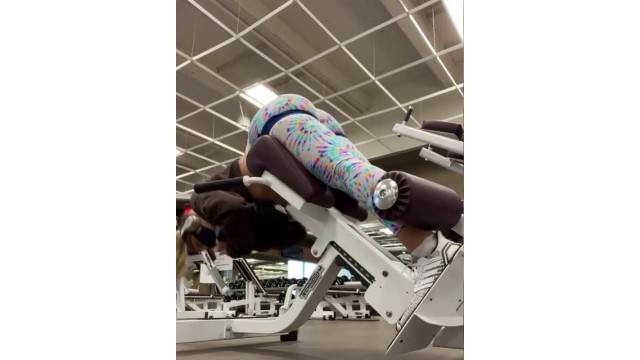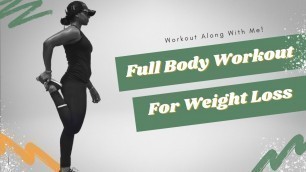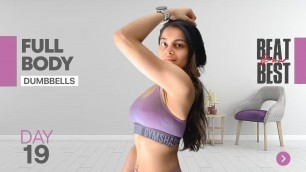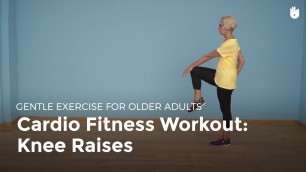'Hot Fitness Girls'


'Being a female Olympian must be a confusing experience. You win a gold medal, you wow the world with your athleticism and sporting talent, you make history … and all anyone can talk about is your make-up, your marital status, or your hair. In 2020 we may finally have woken up to the infuriating daily inequalities facing sportswomen, but it is damning that so much superficial nonsense remains in the rhetoric that surrounds their success. We should be in awe of what these sportswomen do and say, not harping on about what they look like. When Simone Manuel won gold in the pool, and spoke out about Black Lives Matter, she wasn’t doing it so that people could have an opinion about her hair. When Jessica Ennis-Hill ran her guts out in the 800m for a heptathlon silver medal, she wasn’t thinking about showing off her abdominals. When Egypt’s Nada Meawad and Doaa Elghobashy made their Olympic debut in beach volleyball, they weren’t weighing up how their outfits looked compared with their bikini-clad rivals. Jessica Ennis-Hill ‘When Jessica Ennis-Hill ran her guts out in the 800m for a heptathlon silver medal, she wasn’t thinking about showing off her abdominals.’ Photograph: Ian Walton/Getty Images Neither should we be. If I see one more editorial about a sportswoman’s outfit, or make-up, or how to get abs like an Olympian, I will throw up. Professional sport should be about the struggle to reach the pinnacle of your abilities, to stretch yourself, to win. These women put their bodies on the line, and use their platform to make bold political statements; it can’t be right that all we can think about is how to achieve greater butt lift. Because with the explosion of fitness for women has come a new preoccupation with our bodies: the quest for muscle – also known as “fitspo”. It’s all delivered under the banner of being good for you, buoyed by the now ubiquitous slogan: strong is the new skinny. But if strong really is the new skinny, then why do the #Fitspo and #SheSquats images show us flat stomachs? Is “strong” just “skinny” rebranded? And why does it all come loaded with this weird front-facing pressure? By its very nature, fitspo wants you to show your muscle off: to tweet it, Instagram it, Facebook it, Snapchat it. Women, once again, are being put on display. Fitspo: how strong became the new skinny Read more What is so pernicious about this movement is that feeling bad about our bodies is being dressed up as female emancipation, wrapped up in the idea of self-control. If you want to look good, you just have to work harder. You’ll feel pain now, but you will feel great tomorrow. Look at her! Do you think she just woke up like this? No! She sweated in the gym. (Remember, ladies, “sweat is just fat crying”.) If you said any of this out loud, to a friend, you’d probably both have an attack of the giggles. But somehow, in the private glow of the laptop, or phone, these images hold sway over us. Why? Because the messages are so familiar. We’ve been hearing them our whole lives in the language of the diet industry. We already know that we should suffer for our bodies to look right; we already know that we should critique, and pick, and compare, and judge, and measure, and ultimately feel dissatisfied. This is our zone. Depressingly, it’s fast becoming the case for men too. Reggie Yates’s BBC documentary, Dying for a Six Pack, broadcast earlier this year, brought tears to my eyes as I watched young men risk their lives, waste their bank balances, and ultimately damage their own mental health – all in the pursuit of the right shaped abdominal stack. Which, inevitably, never materialised. Because all our bodies are different and we won’t all get six packs, even if we work out in a sauna, on steroids, with our gut wrapped in cling film. The narrative was so eye-gougingly familiar I wanted to shout in despair at the TV. Skinny was bad enough, but now we need a six pack and a tight booty that looks like it’s been implanted with beachballs Rather than “strong” paving the way to female liberation, it all just smacks of new pressures to look a certain way, to conform to a new body trend. Skinny was bad enough, but now we need a six pack and a tight booty that looks like it’s been implanted with beachballs. Plenty of sports at least offer the possibility of inclusivity – but this exercise trend feels entirely elitist. It’s expensive, it involves tight-fitting lycra and revealing crop-top outfits: just how many women are we further alienating in an already alienated section of the population? #fitness ,#fit ,#fitnessmotivation ,#fitnessgirl ,#fitnessmodel ,#fitnesslife ,#fitgirl ,#gym ,#gymmotivation ,#gymtime ,#gymlife ,#beautiful ,#model ,#pretty ,#sport'
Tags: fitness , gym , beautiful , model , SPORT , fit , gymlife , pretty , fitgirl , fitnessmotivation , fitnessmodel , gymmotivation , fitnessgirl , fitnesslife , gymtime
SEE ALSO: lower body workout , legworkout , 45 , cardio dance , GEN , lose belly fat , Health and fitness , legtoning , wo , kettlebell













comments: